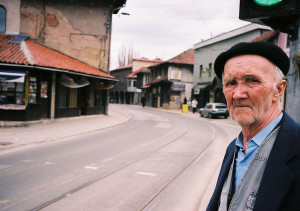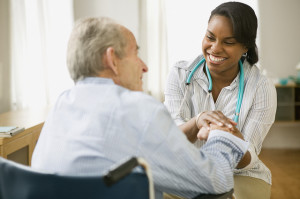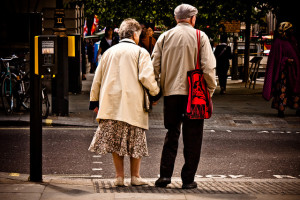How To Take Care Of The Accident-Prone Elderly
Baby boomers around the globe have dramatically increased over the past years. According to an article by Dr. Susan Blumenthal in The Huffington Post, every day past January 1, 2011, another 10,000 baby boomers will celebrate their 65th birthday. As the older generation and accident prone elderly increases in population, the need to provide them with healthy and safe home environments to live in increases, too.
We cannot guarantee to constantly be around our aging parents’ and grandparents’ side whenever they are at home. Of course, we need to be at work every day, and often, we need to go about doing our daily tasks. We cannot always guarantee that our elderly loved ones can tag along with us whenever we are out of the house. Now, how do we erase the notion that our aging parents are burdensome? How do we get the peace of mind that our elderly loved ones are safe and sound when they are left at home?
It all starts in preparing the home
There will be times when our elderly loved one will have to be left alone in the house. Surely, we all have a lot of things to do, and we can’t expect our elderly dad or mom to tag along with us all the time. For us to feed in a more secured lifestyle for our elderly loved ones when we are out of sight, it is best advisable for us to hire a professional that can help dispatch a caregiver for our dear mom, dad or grandparent. Of course, it is perfectly understandable if our loved one denies the fact that he or she needs some help. The professional we hire is just the person we can run to for mediator recommendation that can help in turning around our loved one’s stubbornness. The National Association of Professional Geriatric Care Managers provides professional recommendation that suits our loved ones’ needs.

Photo by World Bank via Flickr
Health comes first
As we age, so does our healthy immunity wear out. Health issues such as heart attacks and strokes are commonly dealt with by the elderly. The elderly’s forgetfulness to take meds is just one of the issues we constantly worry about. This is especially true if our elderly loved one is battling Alzheimer’s disease. Enlisting the help of a neighbor to be there to remind our loved one to take his meds saves us the worry that our parents would need to fight for his life at the emergency room. We form stronger bonds with our neighbors as their concern for our fragile elderly loved one deepens.

Photo by myfuture.com via Flickr
Technology keeps your loved one posted
Elder alarm systems that may be connected to a cellphone helps in alerting your loved one of an emergency such as a fire or a hurricane. The sound amplification system that accompanies the sounding alarm on a mobile device easily enhances the quality of the sound that the elderly hears when an emergency occurs. Elderly with hearing problems can quickly take action and call 911 when these alarm systems go off. The alarm and sound amplification systems work well in conjunction with smoke and fire detectors. Moreover, these systems will help the elderly further if they operate in conjunction with the all-hazards radio. The all-hazards radio provides updates when a natural disaster around the area is about to occur. The independence of our elderly loved one becomes prominent as these technological tools give them the support they need along the way.
Get behind the wheel instead
Our elderly father may not admit it, but he may already be incapable to get behind the wheel and drive! We need to explain to dad that we are just looking out after his safety without letting him feel inadequate. If everything fails and our dad remains stubborn, when we are not at home, we have to be sure to bring the car keys with us to avoid dad sneaking behind our back and driving off somewhere. We need to be the driver instead when our dad needs to take the car and go somewhere. We need to be firm in our stance against dad driving when we are well aware that he is incapable to do so.
Visit frequently
With the trend of independence becoming prominent as time passes by, it is no surprise that there are many elderly people who prefer to live by themselves. This may bother you at first, and it is perfectly understandable. However, you also need to take into account that your dad, mom, or grandma may still want to feel her adequacy of being capable to be independent. Because of this, we need to let go in some way and give them the space that they need. Visiting as many times as we can in a week would definitely enable us to be there for her when she actually needs our help.

Photo by Garry Knight via Flickr
Accident prevention for elderly is possible without having the need to inhibit our loved ones to have the freedom to mostly function on their own on a daily basis. Family unity and cooperation is one of the most important things that can make the situation work or not work out. We would want to be cared for when we get older just like how our aging parents
wanted us to care for them.

If your elderly parent is living with you, it can really be difficult to juggle taking care of them and working. One you can do is make the home safe and secure when you leave them in the home by themselves. Better yet, you can go and hire a dependable home care worker to cater to them while you’re away. Supposing you can afford such services, then you might as well go forward with it. With someone with them when you’re not around, you can be assured that they are protected from danger as much as possible.